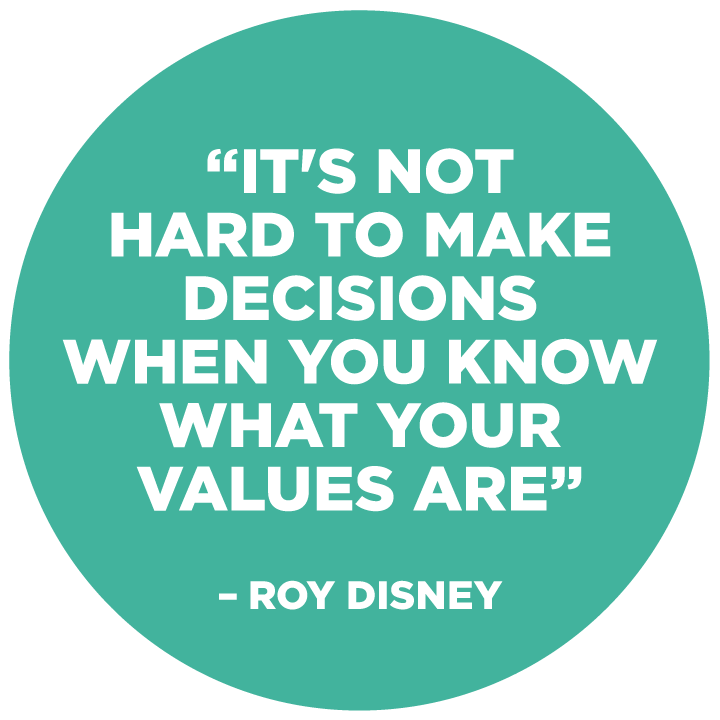Last year, a good girlfriend told me about The Coaching Fellowship, a female-only program that offers professional coaching to budding leaders. I was accepted into the Fall 2017 cohort and was paired up with the fierce Mary Rezek, who shares my bi-continental interests and lifestyle. During our second session together, she asked me to state my personal values.
Personal values, you say? That should be easy right? Which (super) opinionated 36 year old doesn’t know her personal values? This one does *points at self*. I put pen to paper and thirty minutes later I had the following list, in order of importance –
- Always be learning
- Do not fear failure
- Give love
- Create
- Embody gratitude, humor and joy
Look at my awesome values, I thought to myself. Even though the list was deliberately short, it captured all that I thought I should prioritize in living an enlightened, saintly life.
When I shared it with my coach though, she wasn’t nearly as impressed. The first thing she asked was, “so, do you do all of these things?” Well, no, I answered. I think I am always learning and prioritizing, but I’m trying to get better at overcoming my fear of failure, for example, and I’m still a ways away. “Then those aren’t your values,” she said flatly.
“Your values are the beliefs that form the basis for your decisions. They aren’t aspirational. They are how you live.”
What! Those aren’t my values! Those aren’t my values? I clearly had no idea what values were! How could that be possible?!
Wait. I have an answer for that. For one, my mind has been polluted by the empty corporate values that most organizations espouse. You know, the ones that everyone should abide by, and perhaps genuinely try to, but rarely actually do. I thought that’s what values were. Inclinations … aims … wishes. Not things as they actually are.
However, I wasn’t supposed to answer how I wished I lived, but how I actually lived based on the decisions I actually made. And the more important or agonizing the decision, the more my reasons for that decision were important indicators of the underlying belief or value that I held. (Imagine if corporate values were this evidence-based … there would probably be a lot less smirking when they’re presented.)
With objectivity in mind, I turned again to the subject of my values and came up with the following:
- Learning: particularly new ideas, constructs, or fields
- Authentic connection: to be open with my thoughts, and act consistently in my actions (and ideally, to have others be the same in return!)
- Integrity: to be honest and ethical, to always do the right and fair thing
- Autonomy: to be free and creative in my thoughts and actions
While they don’t deviate very significantly from my first list, these values served to clarify and make much more coherent my “way of living” to myself. This list just felt much more right. For example, for each value, I could think of a big decision I had to make that highlighted how much it meant to me, and how much I was willing to sacrifice in order to be aligned with it.
Take the first value of learning, which dominated the top of both my “aspirational” and “true” list of values. I can clearly point to the time when I forewent a significant six figure cash bonus in order to take on a more intellectually challenging, although less paying job … three months earlier. That’s right, I wasn’t even willing to wait three months for a large payout, because the need to be learning and the inner decay I felt from not learning was so distressing that I would do pretty much anything to be rid of it, even at a steep price.
Then there is the value of authentic connection, and how much I have increasingly refused to represent anything other than my true beliefs, even if it meant risking the wrath of often more powerful others. It wasn’t always the case in my youth, but it sure is the case now.
As for integrity, I’ve gone out of my way to uphold integrity at the expense of professional mobility. But that was always a source of pride, not regret, and it’s something I will absolutely choose to do, again and again.
Finally, when all three conditions are met, I’m also highly drawn to autonomy. I like being able to be free to problem-solve on my own, but it’s not always necessary. I fared well in structured environments as well, and don’t mind executing to order. Plus, there was always some element of creativity, even in the most menial tasks I did. I can find some joy in that.
So that’s what I learned. Values are for how you actually live your life, not how you’d like to imagine yourself living it.
My values, if unfulfilled, if I don’t live them, will give me a lot of cognitive dissonance. If all fulfilled, if lived, will make my heart sing. Maybe we can’t live 100% of our values 100% of the time … but I plan to try.
A longer version of this article originally published at medium.com


